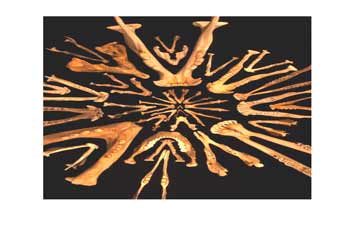May 7th 2019 13h: international seminar PALEVOPRIM
Speaker
Professor, Department of Integrative Biology, University of California, Berkeley, USA
Topic
A genetic perspective on the evolution of primate teeth
For centuries, paleontologists have devised a range of quantitative approaches to investigate variation in the size and shape of teeth as a means through which to understand mammalian evolution. Recent advances in quantitative genetics enables us to add a new technique to this repertoire. In this presentation, I will present a three-part overview of my lab’s evolutionary quantitative genetic research on mammalians postcanine dental variation. First, I’ll describe how we identified ratios that capture the output of two genetic patterning mechanisms, and then show how these ratios/traits vary across extant and extinct anthropoid primates. I’ll build on this research for the second part of the talk, extending our investigation to sample across the Boreoeutheria. In the third section, I’ll focus in on the Hominidae, raising questions about how we recognize and define genera in the fossil record.
Leslea J. Hlusko is a paleontologist focusing on the evolution of primates, primarily Old World monkeys and humans. Her approach remarkably combines quantitative genetics on controlled populations of extant mammals, fossil studies, and field research for early evidence of human evolution. She conducted research projects at Olduvai Gorge in Tanzania and at Lemudong’o, a late Miocene site in southern Kenya. She is codirecting the Human Evolution Research Center at Berkeley, a research group that developed some of most significant research and discoveries on human evolution.
Place
Room 410, build. B35 (3rd floor, north wing), University of Poitiers.
Find out more





